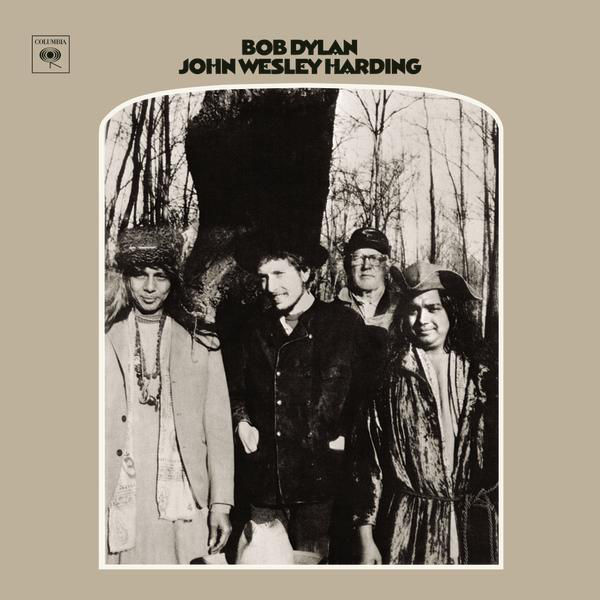Music changed forever in 1967, primarily because in the wake of Sergeant Pepper’s Lonely Hearts Club Band, it was firmly established that the long player had finally wrestled the mantle of definitive medium for rock and roll statements from the single format. Sure, it was already in the pipeline anyway, as acts like Pink Floyd and Traffic were already working on their debut albums when Sgt Pepper was released, and The Beatles themselves had already released a number of top-draw albums. Not only had the album become the rock and roll format of choice, but psychedelia and increasingly sophisticated production had come the way forward for rock and roll stylistically. Yet there was one dissenter. A man who went on record saying that Sgt Pepper was over-produced. The one artist to have managed to have haul himself on to the same creative plane as the fab four during their period of cultural dominance. He’d even managed to release a string of albums that were already established as modern classics, with Blonde on Blonde had establishing that, not only could rock and roll work over the duration of a single album, that with some thought, it could do the double too. That man was Bob Dylan, and by the end of 1967 and post-motorcycle-assisted career break, he had a new album for those that considered him the voice of a generation to fawn over.
John Wesley Harding, released in the final week of 1967, could be considered Dylan’s ‘Columbo moment’, when in the dying moments of the year where counter-culture went mainstream, it’s most celebrated songwriter turned around and said “One more thing…”. You see, Dylan had made sure that John Wesley Harding went against the production overload that his contemporaries had embraced so fully. No, here was an album of stripped back songs, that boasted a sound so dry that it sounded practically arid. Songs like “Ballad of Frankie Lee and Judas Priest”, “Drifter’s Escape” and “Wicked Messenger” were equal to anything he had done before and sounded like nothing else that had been released in the last eighteen months. Hell, he even showed the roots rock approach could work for pop music too, particularly on the toe-tapping closer “I’ll be Your Baby Tonight”. In reacting against the increasingly complexity of rock and roll music and going back to basics, Dylan had created the first roots-rock album, and created the first way marker for the next rock and roll movement.
In the wake of John Wesley Harding, bands like Delaney and Bonnie and Dylan associates The Band would release material that explored the same rooty, soulful, stripped back approach. And then others would follow the same path too. After trying to emulate The Beatles with Their Satanic Majesties Request, The Rolling Stones would simplify and record a series of four albums which still stand up as the best of their career. Even The Beatles realised that they had wandered down a psychedelic cup-de-sac, resulting in much of the material on their 1968 self titled album sounding much more simple and stripped back.
In retrospect, John Wesley Harding is one of the most laid-back recordings of Dylan’s 60s output, which given that it was recorded after he had recuperated from his fabled motorbike accident is no great surprise. To be honest I’ve never been really convinced about the motorbike crash, instead I subscribe to the theory that it was a handy excuse to get out of some ridiculously ambitious touring and recording commitments, spend some time with his young family and just generally drop a gear after his prodigious mid 60s output. This is Dylan returning to his acoustic roots, but instead of reprising the finger-pointing protest of his early material, he went all country-rock and used all manner of religious imagery in his songwriting. Okay so maybe it wasn’t the album that his fans were expecting, but it was an album that Dylan needed to make in order to prevent himself from burning out, and its influence can still be felt in the likes of The Silver Jews, Smog and, well, just about anyone who has dabbled in rootsy rock in the last fifty years. John Wesley Harding is not an immeadiate album, but given a few plays it shows real substance and depth.
Oh, and one more thing… Dylan’s version of “All Along the Watchtower” on John Wesley Harding is still the best. By anyone. Ever.














No Comment